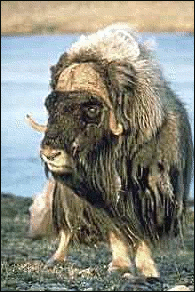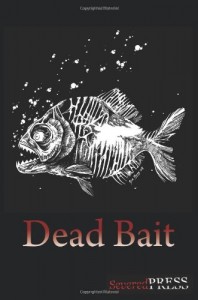For this blog post I’m dividing the great writers into two categories–pioneers and giants. I define pioneers as those who start a new genre of fiction by themselves, and giants as those who come along later and take an existing genre to new heights and greater popularity.
Here is a table listing a few literary genres and some of the pioneers and giants in each one:
|
Genre |
Pioneers |
Giants |
| Adventure | Heliodorus, Homer | Edgar Rice Burroughs, Alexandre Dumas, Ian Fleming, H. Rider Haggard, Victor Hugo, Emilio Salgari, Robert Louis Stevenson, J.R.R. Tolkien, Jules Verne |
| Comedy | Aristophanes | Douglas Adams, Joseph Heller, William Shakespeare, R. L. Stine, Kurt Vonnegut |
| Crime | Steen Steensen Blicher, Edgar Allan Poe | Arthur Conan Doyle, Raymond Chandler, Agatha Christie |
| Fantasy | Homer | Marion Zimmer Bradley, Edgar Rice Burroughs, Stephen King, C. S. Lewis, J.R.R. Tolkien |
| Historical | Chariton of Aphrodisias | Pearl S. Buck, Ken Follett, Robert Graves, Eleanor Hibbert, James Michener, Baroness Emma Orczy, Ryotaro Shiba, Leo Tolstoy |
| Horror | William Beckford, Ann Radcliffe, Matthew Lewis | Stephen King, H. P. Lovecraft, Edgar Allan Poe, R. L. Stine, Mary Shelley, Robert Louis Stevenson, Bram Stoker, Oscar Wilde |
| Mystery | E.T.A. Hoffmann, Edgar Allan Poe | Jiro Akagawa, Agatha Christie, Arthur Conan Doyle, Erle Stanley Gardner, Dashiell Hammett, Kyotaro Nishimura, Edward Stratemeyer |
| Philosophical | St. Augustine | Albert Camus, Fyodor Dostoyevsky, Hermann Hesse, Aldous Huxley, Soren Kierkegaard, Stanislaw Lem, C.S. Lewis, Jean Paul Sartre, Ayn Rand, Voltaire |
| Political | Plato | Edward Bellamy, Benjamin Disraeli, Franz Kafka, Sinclair Lewis, Thomas More, George Orwell, Aleksandr Solzhenitsyn, Harriet Beecher Stowe, Jonathan Swift, Voltaire, Gore Vidal |
| Romance | Chrétien de Troyes, Sir Thomas Malory, Ann Radcliffe | Barbara Cartland, Jackie Collins, Catherine Cookson, Janet Dailey, Eleanor Hibbert, Debbie Macomber, Stephenie Meyer, Nora Roberts, Denise Robins, Danielle Steel, Corín Tellado, |
| Satire | Aristophanes | Ambrose Bierce, Anthony Burgess, Candide, Joseph Heller, Aldous Huxley, George Orwell, Jonathan Swift, Mark Twain, Kurt Vonnegut |
| Science fiction | Jules Verne | Douglas Adams, Isaac Asimov, Ray Bradbury, Edgar Rice Burroughs, Orson Scott Card, Arthur C. Clarke, Robert Heinlein, Frank Herbert, H. G. Wells |
| Steampunk | James Blaylock, K. W. Jeter, Tim Powers | Paul Di Filippo, William Gibson, Bruce Sterling |
| Thriller | Homer, John Buchan | Dan Brown, Tom Clancy, Clive Cussler, Michael Crichton, Ian Fleming, Ken Follett, Frederick Forsyth, John Grisham, Robert Ludlum, Alistair MacLean |
| Urban | Robert Beck | TN Baker, Kole Black, De’Nesha Diamond, K’wan Foye, J.Gail, Erick Gray, Shannon Holmes, Pamela M. Johnson, Solomon Jones, Mallori McNeal, Miasha, Meesha Mink, Jeff Rivera, Big Rob Ruiz, Sister Souljah, Vikki Stringer, Nikki Turner, Anthony Whyte |
You can quibble with the names in the table and that’s fine; I don’t pretend that it’s 100% accurate or complete. But as I look through the table a couple of things are apparent:
- There are a lot of genres, and probably more for you to invent. (I didn’t list all genres, or very many subgenres.) There will be more pioneers.
- Just because a genre is old (the pioneer long dead) doesn’t mean new, modern giants can’t emerge. It’s never too late to be a giant.
In general, the pioneer lays down some of the rules for the genre and takes the first tentative steps within its boundaries. The pioneer faces the difficulty of convincing a skeptical publisher to take a risk on a book that doesn’t fit in any known category.
But it is the giants who really explore the full extent of the genre and help to popularize it for more readers.
Perhaps one day you’ll be looked upon as a great author. Which type will you be–a pioneer or a giant? There’s glory in both. Which would you rather be? Let me know by clicking “Leave a comment.” Hoping to become one or the other, I’m–
Poseidon’s Scribe




